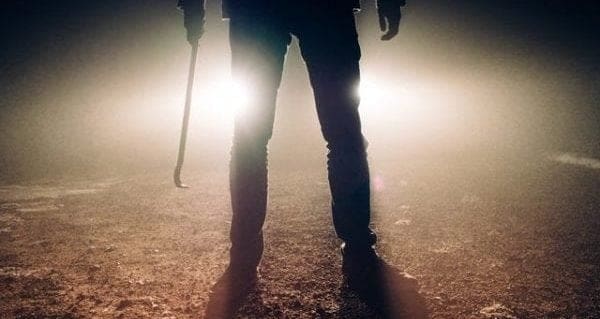 Two recent cases have shone a spotlight on the very limited right that Canadians now have to defend themselves and their property. They are the Gerald Stanley case from Saskatchewan and the recent Peter Khill case in Ontario. In both cases, property owners shot men who invaded their property to commit crimes.
Two recent cases have shone a spotlight on the very limited right that Canadians now have to defend themselves and their property. They are the Gerald Stanley case from Saskatchewan and the recent Peter Khill case in Ontario. In both cases, property owners shot men who invaded their property to commit crimes.
In both cases, Indigenous advocates have advanced the theory that the cases are essentially about race – the thief who was shot was an Indigenous man in both situations.
In fact, the cases are essentially about self defence.
In the first case, the Stanley family suddenly found their remote Saskatchewan farm invaded by five intoxicated people. The five had a rifle and it had been used to smash the windshield of a vehicle at a neighbouring farm while the terrified owner, an older woman alone, huddled in her house in terror. She had no way of knowing if these brazen thieves would come after her after smashing that windshield.
The Stanley family also didn’t know what the thieves who invaded their property planned to do.
The fact that the five would enter the farm in broad daylight, in plain sight of the Stanley family, and begin to steal a vehicle right before their eyes was ominous. If the thieves were that brazen, what would they do next?
The facts of the case were thoroughly examined in court and the jury acquitted. The fact that the five were Indigenous was not surprising. In Saskatchewan, an Indigenous man is 33 times more likely to commit a crime than is a non-Indigenous man. (This is a direct result of the disastrous reserve system that has created dependent communities that are ideal breeding grounds for dysfunction of all kinds). However, the significant issue in the case was Gerald Stanley’s right to defend his family and not the racial background of Colten Boushie, who died as a result of the incident.
Similarly, in the Khill case, the important issue was not the racial background of the thief. In fact, there was no racial factor in that case at all. The jury heard that Khill saw the bare outline of a man sitting in his truck. Other evidence made it clear that the man was caught in the act of stealing the truck. Khill testified that he thought the man was turning towards him with a gun in his hands. That’s when he shot the man. Khill had no way of knowing anything about the background of the thief. He barely saw him. He certainly had no idea that the man was Indigenous.
Indigenous advocates who say that the case is about race are simply playing a political game.
The important issue in both cases is the right of a person to defend his or her family and property. Until recently, the old English maxim that a man’s home is his castle was recognized as an unwritten guide for police and prosecutors in situations where an invading thief was killed by the property owner. This still applies in the United States and most other parts of the world. Some American states have explicit stand-your-ground laws, but even in those that don’t it’s unlikely that Khill or Stanley would have been charged with murder. Throughout history, it’s been recognized that a person has a right to defend themselves, their family and their property. A person who chooses to invade the property of another does so at their own peril.
This is no longer the case in Canada. The RCMP have put people on notice that if their property is invaded, they are to retreat into their houses and call the police. Under no circumstance are they to attempt to defend themselves or their possessions. The Boushie and Khill cases make it clear that if a property owner disregards that advice and an invader dies, the property owner will be charged with murder.
The RCMP advice goes too far and is out of touch with reality. It acts as an open invitation to criminals to break the law at will. Criminals are quite aware of this policy and realize that it makes rural residents sitting ducks.
Two juries have now made it clear by their acquittals that the policy doesn’t make sense. It doesn’t work because it takes away people’s ancient right to defend themselves. Citizens will not tolerate that.
Canada doesn’t need American-style stand-your-ground laws, but it definitely needs laws and policies that recognize the right of people to defend their families and homes. In a situation where a thief dies while committing a criminal offence on private property, it shouldn’t be the norm to charge the property owner with murder. In fact, it should be the very rare case that results in a murder charge.
Would-be thieves must get the message that if they venture onto someone’s property with the intention of committing a crime, they have only themselves to blame if something goes wrong. If they end up losing their life, they’re the author of their misfortune.
The fact that two juries have now rendered verdicts of self defence sends a strong message that the status quo is unacceptable.
Brian Giesbrecht is a retired judge and a senior fellow at the Frontier Centre for Public Policy.
The views, opinions and positions expressed by columnists and contributors are the author’s alone. They do not inherently or expressly reflect the views, opinions and/or positions of our publication.
This site is Powered by Troy Media Digital Solutions


